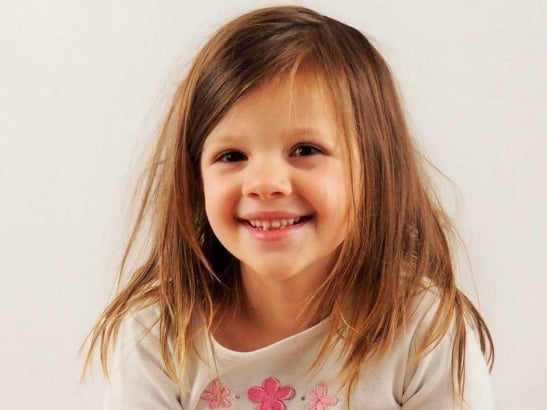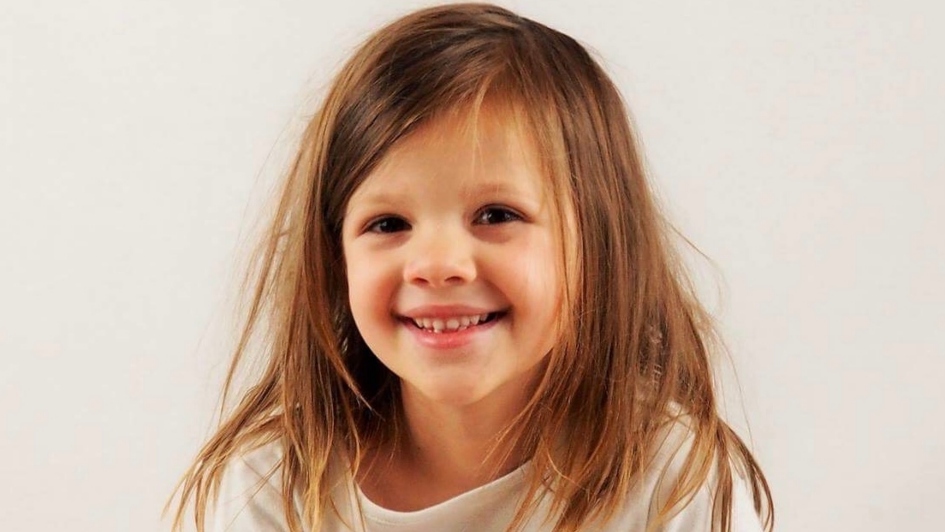
Image: Alice Wakeling. Credit: Sara Wakeling
Rhabdomyosarcoma (RMS) is the most common soft tissue cancer in children and young adults, but sadly there are many whose disease will return after treatment.
This project will examine how chameleon-like cancer cells can ‘shapeshift’ without undergoing any genetic changes, in order to identify potential new therapies.
Urgent research needed
Alice’s Arc was launched by the parents of Alice Wakeling, who died from rhabdomyosarcoma when she was seven years old.
Her mother Sara said: “The prognosis for relapsed rhabdomyosarcoma is dismal, with around an 8-20% chance of survival. Current treatments on offer don't work well enough.
“In our view, not enough research has been done to understand the biological mechanisms that lead to relapsed rhabdomyosarcoma, and progress over the last few decades has stalled. Too many families have to face the impossible situation of watching their child deteriorate with no potentially curative treatment options available. This urgently needs to change.
“We are ambitious as a charity, and we want to be at the forefront of research. Discovering more about the biological mechanisms that drive this disease creates a sense of hope for families. Alice's Arc is delighted to be funding this project."
Alice’s legacy
Alice Wakeling was diagnosed with stage 4 alveolar rhabdomyosarcoma in March 2015 when she was three years old. She was treated with chemotherapy for 20 months before undergoing proton radiation in the United States.
Alice spent over one year in remission before her cancer returned in February 2018. She underwent six months of relapse chemotherapy and a specialist surgical procedure with brachytherapy, known as AMORE, in Amsterdam. Alice spent almost a year clear of cancer before masses were detected in her abdomen and pelvis in July 2019. There were no options left and Alice died in October 2019.
The charity set up in her name is dedicated to finding a cure, and kinder, more targeted treatments for those affected by rhabdomyosarcoma. It has built a network of fundraisers with other families affected by the disease across the UK and, from later this year, in the United States.
Sara said: “This model is known as the Arcs, formed in a child's name to raise funds and awareness of rhabdomyosarcoma. Pooling these funds has enabled this significant support for our work.”
Alice’s Arc has already raised £3.5 million and the rhabdomyosarcoma relapse grant is the biggest single award the charity has made to date.
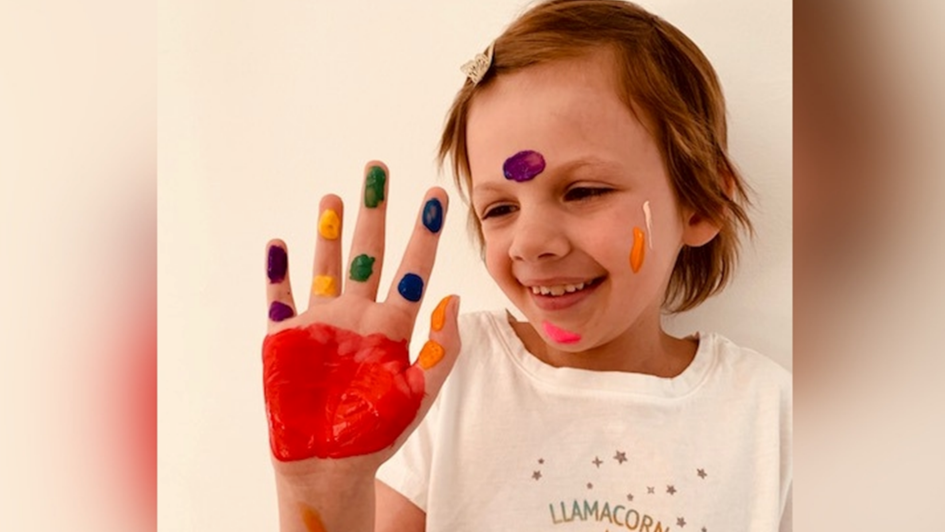
Image: Alice Wakeling. Credit: Sara Wakeling
Back to nature
The four-year project is being led at the ICR by Professor Janet Shipley, Head of the Division of Molecular Pathology and Dr Alejandra Bruna, Team Leader in Preclinical Modelling of Paediatric Cancer Evolution. They will collaborate with Professor Trevor Graham, Director of the Centre for Evolution and Cancer and head of the Genomics and Evolutionary Dynamics team which combine molecular and cellular biology together with mathematical and computational modelling to study the cancer’s evolution.
Dr Bruna explains: “As scientists, we like to go back to nature where adaptation to changes in the environment sometimes involves powerful anti-predator approaches such as camouflage in chameleons.
“We will investigate whether rhabdomyosarcoma cells also change their traits and behaviours to avoid treatment, re-growth and relapse.”
Often this involves genetic mutations in cancer cells that can be inherited and pass from cell to cell.
“However, rhabdomyosarcoma cells, like many children’s cancers have few genetic changes to explain their ability to “chameleon”,” Dr Bruna says. “We call this non-hereditable phenomenon ‘plasticity’.”
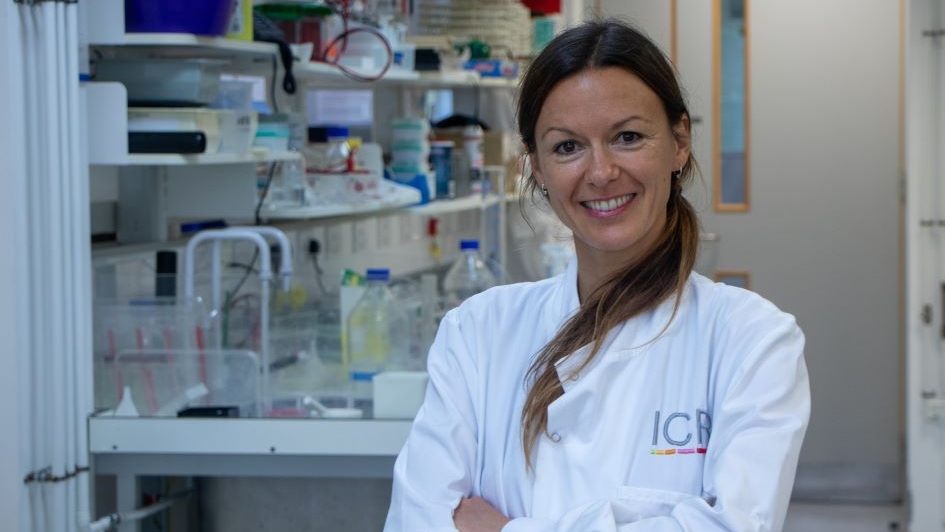
Image: Dr Alejandra Bruna in the lab. Credit: ICR
Understanding cell changes
To investigate how the chameleon-like rhabdomyosarcoma cancer cells can transform without undergoing any genetic changes, the team is developing an innovative technology. They call this the Plasticity Molecular Recorder PMRec because it will allow the researchers to use it as a ‘molecular tape recorder’. This will identify how these cells develop, interact with other cells and adapt as the tumour changes over time.
Scientists know a lot about how cancers look before and after treatments but much less is understood about what happens in between. The plasticity project will examine which cancer cells are able to change their characteristics like chameleons, when the changes occur during and after treatment, and whether cells are able to go back to their original state. It will also explore, at the molecular level, how cancer cells are able to change. This will help scientists to predict how patients will respond to treatment and stop drug resistance and relapse.
This new technology, together with drug screening approaches, will ‘illuminate’ plasticity on the PMRec, changing the colour of the cell as it alters, allowing the scientists to see the transformation with their own eyes and in real time.
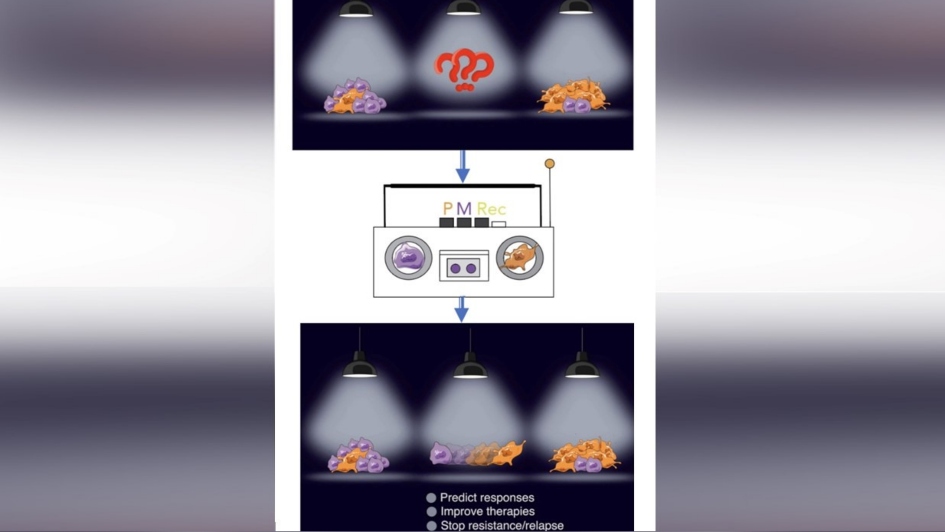
Image: Illuminating chameleon-like cell change. Credit: Dr Alejandra Bruna
The team hopes this new understanding will lead to new treatments that will be more effective than current therapies which only target dividing cells. This is because these will also target undetected cells that have been able to change their form through plasticity and escape being killed by the treatment.
Dr Bruna said: “I was incredibly touched by the support and trust we got from Sara and David Wakeling. Their visionary and ambitious charity is what research needs to have a chance to make quicker and bold progress to find a cure for children with cancer. My team and I hold their support in utmost appreciation. “
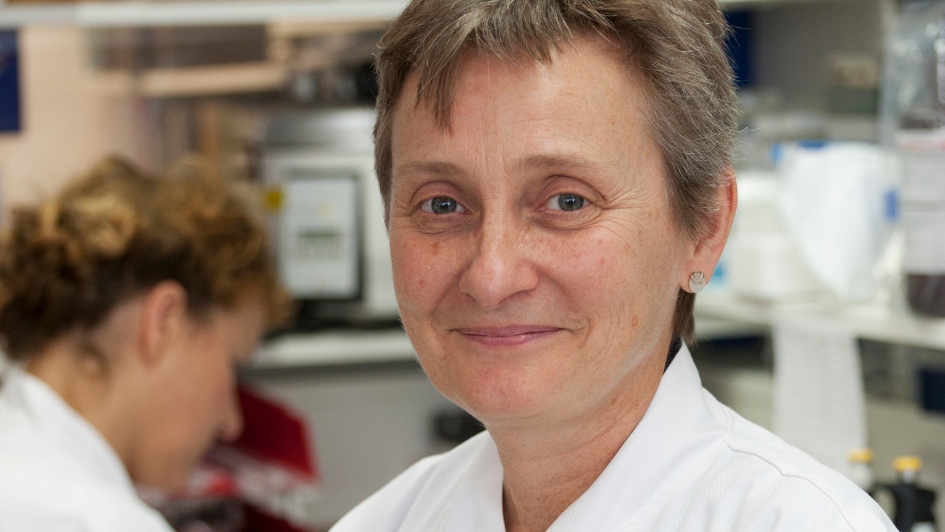
Image: Professor Janet Shipley in the lab. Credit: ICR
Professor Shipley added: “Understanding the differences that can be seen between rhabdomyosarcoma cells and the dynamic way that changes may lead to relapse has been a problem that has kept me awake at night wondering how to tackle.
“I now feel that the stars have aligned – by using this new bespoke recorder system together with new laboratory models that better represent rhabdomyosarcoma at relapse, and recent advances which allow us to molecularly profile and trace single cells, we are in a strong position to examine this problem - and a step closer to discovering potential new treatment options.
“However, this has only become a reality for us to explore thanks to the efforts and generosity of Sara and David and the supporters of Alice’s Arc. Together we hope to make a step-change difference in the way to tackle relapse of rhabdomyosarcoma.”
